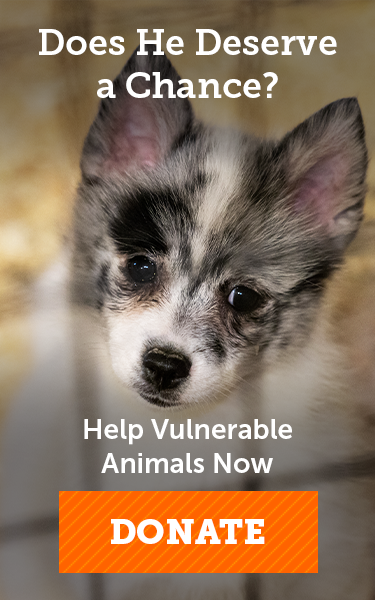
Coalition to Unchain Dogs Utilizes ASPCA Grant Funds to Assist Dogs in Underserved Communities
The ASPCA works year-round to distribute much-needed funds to animal welfare organizations nationwide, and we’re always thrilled to hear success stories made possible by these grants. A happy update recently arrived in our inbox from the Coalition to Unchain Dogs, a Durham, North Carolina-based organization that works to improve the welfare of dogs living in under-served communities, as well as dogs who are frequently chained outdoors, by offering information and free services including wellness care, spay/neuter, vaccinations and fences.
The Coalition to Unchain Dogs utilized ASPCA grant funds to cover the cost of fencing, wellness supplies, leashes, collars, indoor crates and more, paving the way for success stories:
Neno: When a nine-year-old Pekingese mix named Neno was attacked and injured by a stray dog, his pet parent called Animal Services. Upon arrival, Animal Services issued the pet parent a citation to obtain veterinary care for Neno's injuries within 24 hours. He knew he lacked the funds to take Neno to the vet and feared his only option was to surrender him to the shelter. Fortunately, he called the Coalition, who covered Neno’s veterinary costs. ASPCA grant funds allowed Neno to stay with his family who loves him dearly.

Biscuit: When Ilene’s puppy, Biscuit, destroyed two sets of window blinds while she was at work, her landlord insisted that the dog could no longer live in his building. With ASPCA grant funding, the Coalition was able to provide Ilene with a crate for Biscuit along with a new collar and leash. With the new collar and leash, Ilene walks Biscuit twice a day, and his crate provides a place for him to stay while she's at work. Biscuit was allowed to stay in Ilene’s apartment, and today, he is happy and healthy.
Fat Boy: When Patricia’s dog, Fat Boy, developed a severe skin infection, she didn't have the money or the transportation to take him to the veterinarian. She tried giving him allergy medications and cold baths, but Fat Boy was continually chewing and scratching. Using ASPCA grant funds, the Coalition covered the cost of a veterinary appointment for Fat Boy. With prescription medication, Fat Boy’s skin healed within two weeks and he is feeling so much better.

Sheba: When a 14-year-old named Marcus found a puppy roaming the street, he brought her home and named her Sheba. For the rest of the summer, Marcus and Sheba were inseparable, but when Marcus headed back to school in the fall, his mom requested that he tether Sheba in the backyard during the day. Even though Marcus purchased a dog house and put Sheba’s favorite toys and bed inside it, he worried about her. He was afraid someone would steal her, or other dogs would come into the yard and hurt her. The Coalition met Marcus, and he and his mom were so happy to learn the organization could cover the cost of a spay procedure, vaccinations and a fence for the backyard. Thanks to ASPCA grant funding, Sheba is in a safe, fenced-in area while Marcus is at school.
We’re so pleased the ASPCA grant funding has been put to such great use in the Durham, North Carolina community. Keep up the great work!

Pictured are dogs and pet parents assisted by the Coalition to Unchain Dogs.
